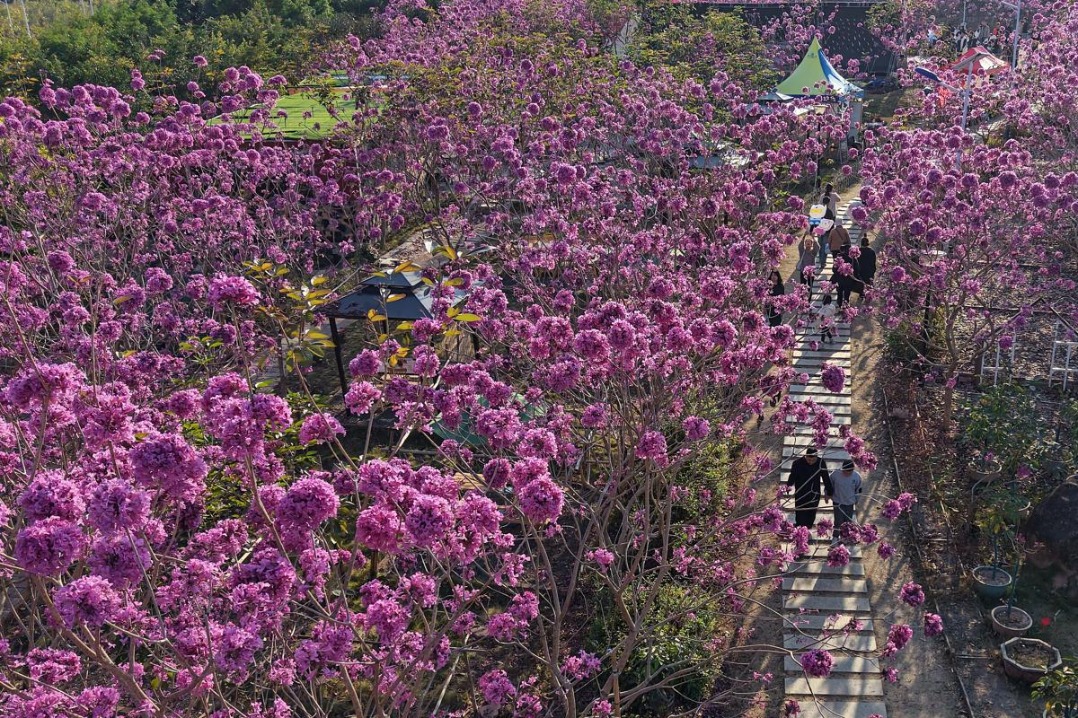Cram schools under closer scrutiny

China is carrying out comprehensive inspections of all cram schools to ensure that those not meeting government standards make prompt corrections, the Ministry of Education said on Thursday.
Supervision over these institutions is being jointly conducted by authorities from the fields of education, civil affairs, human resources and social security, and market regulation, Lyu Yugang, director of the ministry's Basic Education Department, said at a news conference in Beijing.
Inspectors are working together to make sure all necessary changes are completed by the end of this year, Lyu said.
As of Monday, more than 382,000 cram schools from across the country had been inspected, Lyu said.
More than 45,000 had their programs changed to bring them in line with government standards, according to the official.
The State Council's General Office issued a guideline on Wednesday to regulate cram schools in order to ease primary and middle school students' heavy workloads.
It highlighted behaviors such as teaching students more advanced materials than is appropriate for their school grade in core subjects such as Chinese and math.
The institutions should submit information on their programs, such as class content, targeted students and class times, to local education authorities for approval. Information will then be made publicly accessible, the guideline said.
The institutions should not teach ahead of students' school schedules, assign homework or give graded tests, the guideline said.
Certificates and licenses will be reviewed annually, and local governments will publish lists on their websites of qualified institutions and those failing to meet the standards.
Liu Yong, father of a third-grade student in Shanghai, said he welcomes the guideline. "Tutoring classes are getting more expensive, and it's like an arms race between parents with those who send their children to the most tutoring classes being the winners."
His 10-year-old son, Liu Xiaoming, attends three tutoring classes after school and on weekends, one for English and two for math. The school should offer more extracurricular services, such as clubs promoting sports, music or painting, he said.
Yang Dongping, president of the 21st Century Education Research Institute, said the rectification measures come at an ideal time because some tutoring institutions organize contests and offer courses for younger students featuring subject matter from higher-grade classes, thus attempting to give them a head start.
These tutoring classes lead to more peer pressure among students, and competitive pressure among parents, and place undue financial and psychological burdens on them, he said.
The real solution to reducing pupils' academic workload is to increase the quality of regular school education and ensure that parents will only feel the need to send their children to cram schools when they want to develop artistic or athletic talent, Yang said.
In 2016, more than 137 million primary and secondary school students attended cram schools, with the business having a combined market value of more than 800 billion yuan ($117 billion), according to the Chinese Society of Education.
A report issued by the Ministry of Education in July said 43 percent of fourth-graders attend math cram schools, and more than 30 percent of students complain of great academic pressure.
- Beijing mandates helmets for e-bike users, bans scooters
- Judicial guideline streamlines maritime dispute resolution nationwide
- China rolls out festive campaign to boost sustainable agricultural consumption
- China set to establish early pregnancy clinics across 10k hospitals
- Cold front coats Guizhou mountains in rime
- Two dead after unauthorized crossing of Aoshan Mountain





































